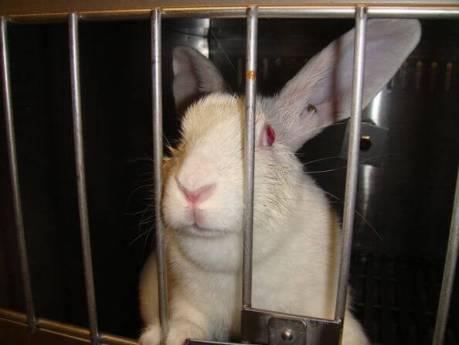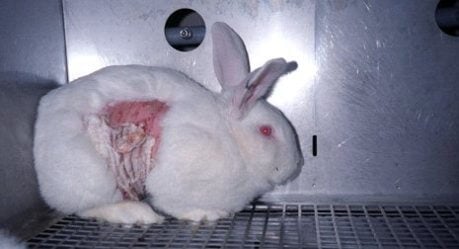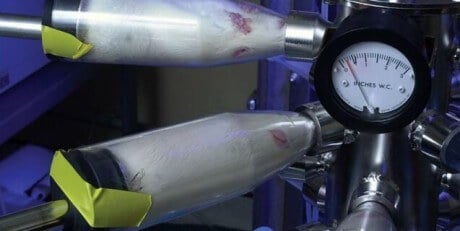Millions of mice, rats, rabbits, primates, cats, dogs, and other animals are languishing in laboratories around the world, where they will eventually be cut up, burned, blinded, or poisoned and then killed. They’re subjected to cruel tests for everything from chemicals to cosmetics. They’re used in medical training tests and in curiosity-driven medical experiments by universities. And they’re killed for classroom biology experiments and dissection.
While much of this testing is not required by any law, various regulations put forth by U.S. government agencies and numerous overseas entities do require animal tests—and many of these regulations result in massive animal testing programs. Enter the PETA International Science Consortium Ltd.: It was established to promote and fund sophisticated non-animal testing strategies and methods and to help government regulators understand why animal tests are not helpful or humane.
The Science Consortium coordinates the scientific and regulatory expertise of PETA entities—its scientists have backgrounds in genetics, biochemistry, environmental science, and molecular and cell biology. It has stakeholder status with the European Chemicals Agency, which oversees chemical testing in the European Union (EU), and the European Union Reference Laboratory for Alternatives to Animal Testing, which plays a critical role in determining which non-animal testing methods are used around the world. It is also successfully addressing testing issues in other countries, such as India, Canada, and Brazil.
The Science Consortium helped PETA UK file the first official animal testing related complaint against the massive EU testing program REACH, and won a ruling that will save the lives of millions of animals. The Science Consortium’s free webinar series on reducing animal use was viewed live by thousands of company representatives, contractors, and regulators. It has also organized and hosted a variety of international workshops, including one on designing and developing a non-animal method to test for pulmonary fibrosis, and has given awards to researchers who are working to replace animals in tests.
This year, the Science Consortium plans to spend $200,000 to support scientists and companies that are developing non-animal test methods. The Science Consortium and its members have provided financial backing to help validate MatTek’s laboratory-grown skin and supported the development of advanced computer models that can predict the ways in which certain molecules affect the human body, and they’re currently funding the development of a non-animal method to determine inhalation toxicity.
Unlike cruel and unreliable animal experiments, such as dripping chemicals into rabbits’ eyes or squeezing rats into tiny inhalation tubes to make them inhale toxic chemicals for hours or even days on end, these advanced methods are actually protecting both animals and humans.
You Can Save Animals, Too
Speak out against animal testing, purchase only cruelty-free products, and donate only to charities that don’t experiment on animals. Support work by PETA and the Science Consortium work to eliminate cruel animal tests and fund alternatives today.
If you or anyone you know would be suitable for employment in this area, please contact Human Resources at 757-213-8770.







